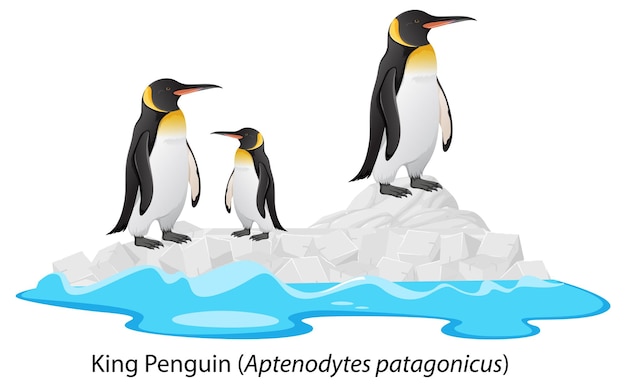Fascinating Facts about Emperor Penguins

Emperor penguins are the tallest and heaviest of all penguin species.
These amazing creatures can reach a height of up to 4 feet (1.2 meters) and weigh up to 88 pounds (40 kilograms).
Emperor penguins live in Antarctica, one of the coldest places on Earth.
They are the only penguin species that breeds during the harsh Antarctic winter.
To endure the extreme cold, emperor penguins have a thick layer of blubber and dense feathers.
Male emperor penguins are responsible for incubating the eggs while the females go out to sea to feed.
The males huddle together, rotating from the outside to the inside to share warmth.
Emperor penguins can dive up to 1,750 feet (533 meters) in search of food.
They can stay underwater for up to 22 minutes, allowing them to catch fish and squid.
Emperor penguins have a streamlined body shape that helps them swim at speeds of up to 5-8 miles per hour (8-13 kilometers per hour).
They have unique adaptations to regulate their body temperature, such as a special blood circulation system.
Emperor penguins have distinct markings on their chest, which can help them identify their mate in large colonies.
These birds use vocalizations, such as trumpeting calls, to communicate with each other.
Emperor penguins have been featured in movies, such as March of the Penguins, which showcased their incredible journey to breed.
They have a long lifespan, with some individuals living up to 20 years or more.
Fascinating Facts about Emperor Penguins part 2
Emperor penguins have a high reliance on sea ice for breeding and foraging.
Climate change and reduction in sea ice are threatening their population.
They often slide on their bellies to move efficiently on the ice, a behavior known as tobogganing.
Emperor penguins have an excellent sense of hearing, allowing them to locate prey underwater.
They have sharp beaks and strong jaws that help them catch and swallow their food.
Emperor penguins stay together in large colonies, which can have thousands of individuals.
These colonies serve as a way to provide warmth and protection against predators.
Emperor penguins have been known to jump out of the water onto the ice to avoid leopard seals.
They are known for their unique courtship rituals, including bowing, calling, and offering pebbles as gifts.
Emperor penguins have been known to form relationships that last for several seasons.
They have an incredible sense of navigation, allowing them to find their way back to breeding colonies each year.
Emperor penguins have been studied extensively to understand their behavior and adaptations to the Antarctic environment.
They have been fitted with satellite tags to track their movements and assess their response to changing environmental conditions.
Emperor penguins have been used as indicators of climate change due to their sensitivity to ice conditions.
These penguins have dense bones that help them dive deep underwater.
Emperor penguins need to molt their feathers annually to maintain their insulation.
During the molting process, they are unable to swim or hunt, relying on stored body fat for survival.
Emperor penguins have been observed sliding on their bellies down ice slopes for fun.
These penguins can release heat from their body through their feet, which are surrounded by a dense network of blood vessels.
Emperor penguins have excellent eyesight, allowing them to spot prey from far distances.
They have a fascinating social structure within their colonies, with different individuals taking on specific roles and responsibilities.
Emperor penguins have unique feather patterns that help them camouflage among the ice and snow.
They have a special gland above their eyes that helps them filter out saltwater after swallowing prey.
Emperor penguins have the ability to control their heart rate and metabolism, allowing them to conserve energy during long dives.
These penguins have been known to create creches to protect and care for their chicks while the parents go hunting.
Emperor penguins have been featured on numerous postage stamps around the world.
They have been studied using advanced technology, such as underwater cameras, to observe their behavior underwater.
Emperor penguins have an incredible ability to withstand extreme cold temperatures, sometimes reaching -76 degrees Fahrenheit (-60 degrees Celsius).
They make a wide range of vocalizations, including trumpeting, growling, and braying sounds.
Emperor penguins are incredible creatures that have captured the hearts of people worldwide with their resilience, beauty, and unique adaptations to survive in one of the harshest environments on Earth.
